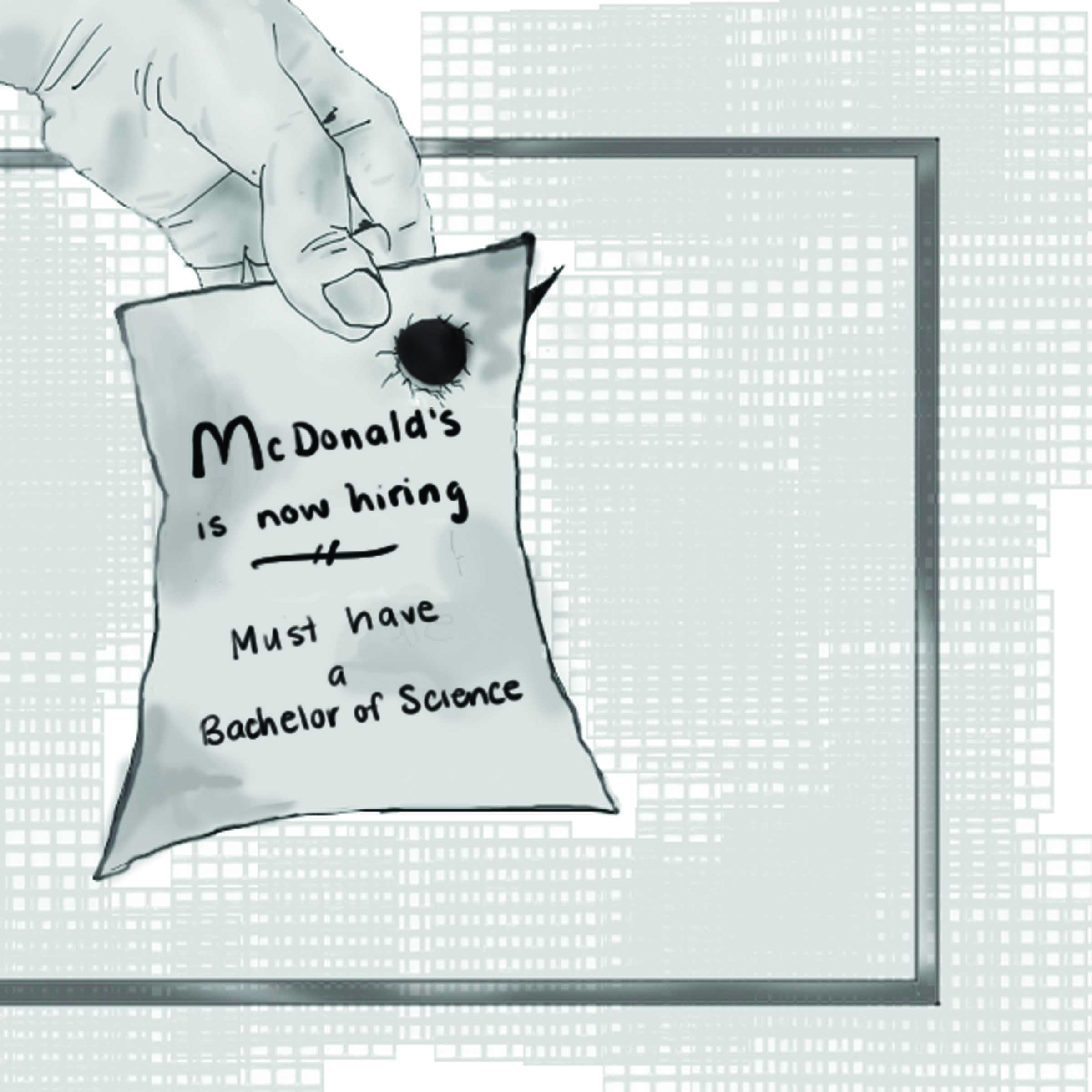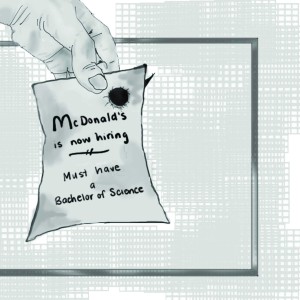Bachelor’s degree not for everyone


Everyone should have the opportunity to go to university, but not everyone should feel they have to.
More often than not, a bachelor’s degree is obtained merely for the fact that it’s become a gate-keeper into a “real job.”
Although a bachelor’s degree is a requirement for most jobs, it could be argued that it’s not technically necessary.
A new employee will learn more on the job than they ever learned in school. In fact, many jobs don’t care what kind of degree the candidate has, as long as they have one.
If the cards are played right, a chemistry major can get a business job; which seems ridiculous that they even bothered to get the degree if the job is not in that field.
Bachelor’s degrees have become gatekeepers, a litmus test to check an applicant’s mettle.
The idea that the degree certifies the candidate completed a task that required some effort, can at least string a sentence together and has some sort of educated background.
It’s more of a character test than a content one; a guarantee of a few basic qualities the employer is searching for.
The irony is that on average 45 per cent of students do not demonstrate significant improvement in their learning in their first two years, and 36 per cent don’t show any over their entire four year university career.
So, for a third of us, the academic part of university is nothing more than a piece of paper on graduation day.
But, the employers make us do it, so we do. Students go thousands of dollars into debt, and spend four stressful years in school so they can pass an employer’s test and get a ‘good’ job.
It’s assumed that a bachelor’s degree will ensure students get better paying jobs. Statistically, a graduate’s unemployment rate is lower, and they have a better chance of reaching management positions.
Between 2001 and 2006, the number of people with bachelor’s degrees grew by 24 per cent and that number is continuously increasing. Already, people are saying that a bachelor’s degree is the new high school diploma.
As more students graduate with degrees, they become more common, and the guarantee of a job once associated with a university education drops. After all, a degree is only as valuable as its rarity.
So now, people are starting to turn to a masters degree. Even those with no real interest in research. Once again, the motto is ‘anything to stand out and prove I’m more qualified.’
Perhaps the cycle will continue; and one day we’ll wake up to a world where a large chunk of society is sporting shiny PhDs in order to get hired. There’s no real end to the cycle if we let it continue.
So, what if we stopped making a bachelor’s degree a requirement for jobs that don’t actually require them?
Although cutting off a chunk of students from the university experience seems grim, they don’t need that expensive piece of paper in the first place. They need job experience. They need internships and companies willing to hire candidates for who they are and what they can learn to do, not because they scraped by for four years.
Schools could accept fewer students and raise the requirements for those they do accept. If less bachelor’s degrees are churned out of the university factory each year then more jobs open up to everyone.
Jobs that teach the skills you need, whether or not you have the degree. Jobs that don’t put the nation’s young adults into debt they will be paying off for a decade.
More internships could open up and the stigma behind a college degree could be removed.
A bachelor’s degree can stay with those who want jobs that actually require them, and masters and PhDs can remain for those who love, research rather than the status seekers.
The crux of the matter is that learning for the sake of learning is fantastic. If that’s why you’re getting a degree then you’re the person PhDs were made for.
But if you’re the person who’s at school because the end goal is a job, then what are you really getting out of this besides a piece of paper?
School can teach us science or they can let us be scientists. They can show us how to write a novel or let us be writers.
School can show us how to plan a business or they can let us be business owners.
Learn the theory, then the job or learn the theory through the job. Perhaps we should re-examine the latter before we’re living in a world where a bachelor’s degree is akin to elementary school and everyone has a PhD.


